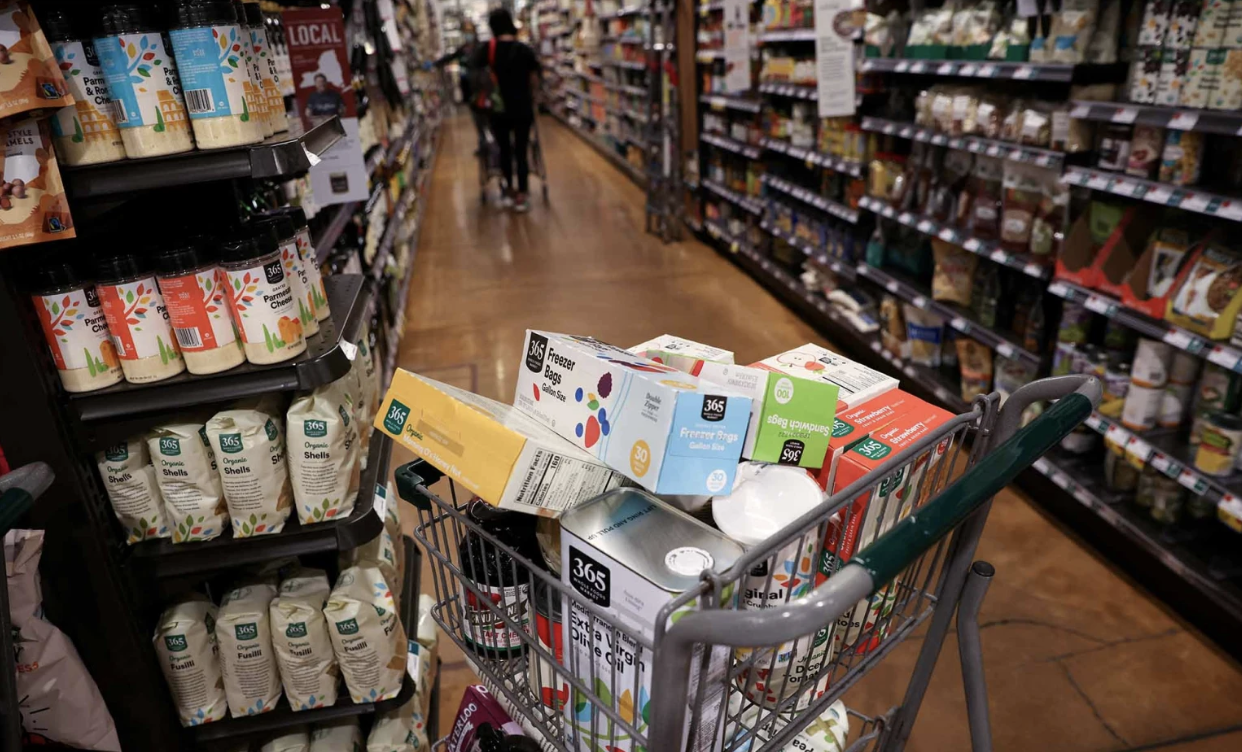By: Noah Rothman – nationalreview.com –
Negotiations between congressional Republicans and the White House over the concessions the GOP needs to hike the national debt-ceiling limit are approaching a crescendo. As the deadline nears, Americans are behaving in a way that seems to have bewildered observers of periodic partisan brawls over federal spending: They’re siding with the GOP.
A CNN/SSRS survey released this week found that most Americans support raising the debt ceiling only if that is paired with spending cuts. That figure includes a majority of self-described Republicans and independents, but Democrats are split on the question. Forty-six percent of Joe Biden’s party support the Democratic position — that a hike in the nation’s spending limit should be perfunctory and unconditional — but 45 percent of Democrats want to see spending cuts, too.
A survey sponsored by Fox News Channel produced similar findings. Fifty-seven percent of registered voters believe Congress should only raise the debt limit if that is paired with spending cuts. Just 27 percent support a “clean” debt-ceiling increase. In this poll, too, Democrats are split. While 47 percent of Democratic voters toe the party line, 42 percent support spending cuts. Republicans and independents back the GOP’s position.
Quinnipiac University’s latest poll shows that registered voters are split down the middle at 40 percent apiece on which party to these negotiations is behaving “more responsibly,” Biden and the Democrats or Speaker Kevin McCarthy and the Republicans. On this question, Fox’s poll was marginally starker for Democrats. While 44 percent of voters would blame the congressional GOP if talks failed and the debt limit was broken, 47 percent would blame the White House.
These results depart from how the public has traditionally responded to spending fights in Washington. Fox’s polling from the summer of 2011 — the last time the political class committed to a sober assessment of the nation’s financial trajectory — found that voters would have blamed Republicans over President Barack Obama if the fiscal fight the GOP picked produced an economic catastrophe.
What changed? The answer is inflation.
For more than a quarter-century, deficit spending in Washington was a relatively cost-free proposition. With brief exceptions, the American economic landscape was defined by low unemployment and rising wages but almost no inflationary pressure contributing to price instability. When America experienced financial crises — recessions in the early 1990s and early 2000s and the mortgage market’s collapse in 2008 — the Federal Reserve’s response was to reduce interest rates, and Washington’s instinct was to put more money into the public’s pockets. Monetary policy and fiscal policy aligned to increase liquidity and boost consumer demand. These policies were a luxury. Like so many other extravagances, that luxury is now cost-prohibitive.
Americans now feel the cost of deficit spending in their wallets. And they don’t need to be talked into that conclusion; it’s intuitive. The bipartisan polling team led by Democrat Joel Benenson and Republican Neil Newhouse established as much in October 2021, just as rising prices began to bite. Their survey found that more than seven in ten independent voters agreed with the statement, “People will continue to pay more money on everyday expenses unless the government becomes more fiscally responsible.” Conditions have only grown more dire in the interim.
One survey of consumers in February found that nearly 70 percent of Americans were delaying non-essential purchases, and fully 90 percent had changed their consumption habits in response to inflation. A Gallup poll released last week showed that 61 percent of respondents view rising prices as a hardship, up from 55 percent in November of last year. That survey showed that the high cost of living is the number one financial concern afflicting American households, and their apprehension is only growing.
Everyone knows that inflation is the biggest economic concern facing Americans, and they know their political representatives are aware of their trepidation if only because they pretend to share their concerns. But relief has been slow — slower than Democrats’ boosters in the press, who breathlessly tout a decline in the cost of this or the other basic necessity by a two-tenths of a percent month-over-month, appear to recognize.
When Republicans bore the brunt of the public’s hostility amid a spending fight in Washington, it was at a time when voters did not feel the pain. Federal spending was an academic concern to them. While spending obsessed the green-eyeshades party, Democrats focused more on preserving the quality of life Americans enjoyed. With the return of inflation, that calculation has flipped. Today, it’s Democrats who appear numb not only to the costs associated with existing debt but also the risks that accompany accruing more of it, even at the cost of Americans’ standards of living. If reining in Washington’s profligate tendencies might provide some relief, the public is willing to try it.
Voters are not idiots. They understand that inflation results from too much money chasing after too few goods, and they can wrap their hands around the implications when the Fed attempts to remedy that unhappy phenomenon by making the cost of borrowing more expensive. It’s belt-tightening season for everyone. So why should Washington be immune from the tradeoffs they’ve had to make in their lives?
To see this article in its entirety and subscribe to others like it, choose to read more.
Source: Republicans Are Winning the Debt-Ceiling Fight Because of Inflation | National Review
 Listen Online
Listen Online Watch Online
Watch Online Find a Station in Your Area
Find a Station in Your Area








 Listen Now
Listen Now Watch Online
Watch Online
